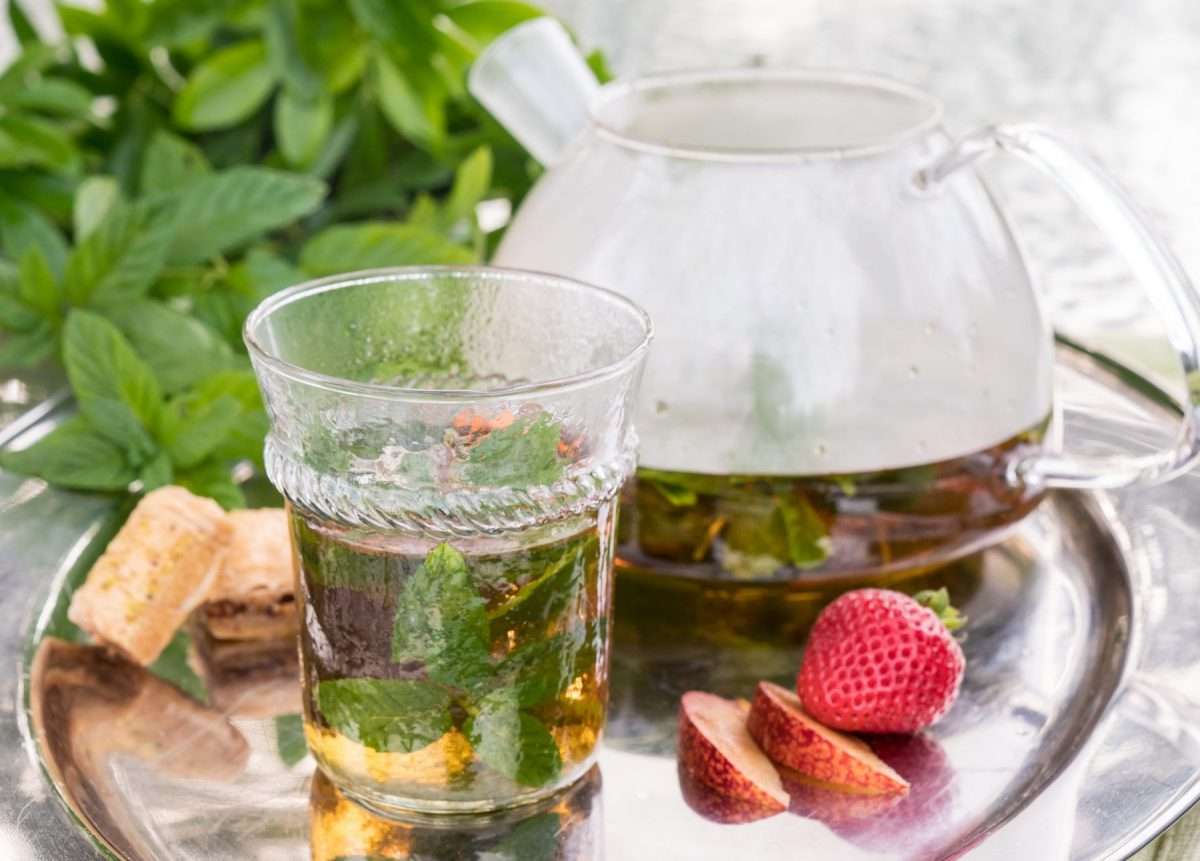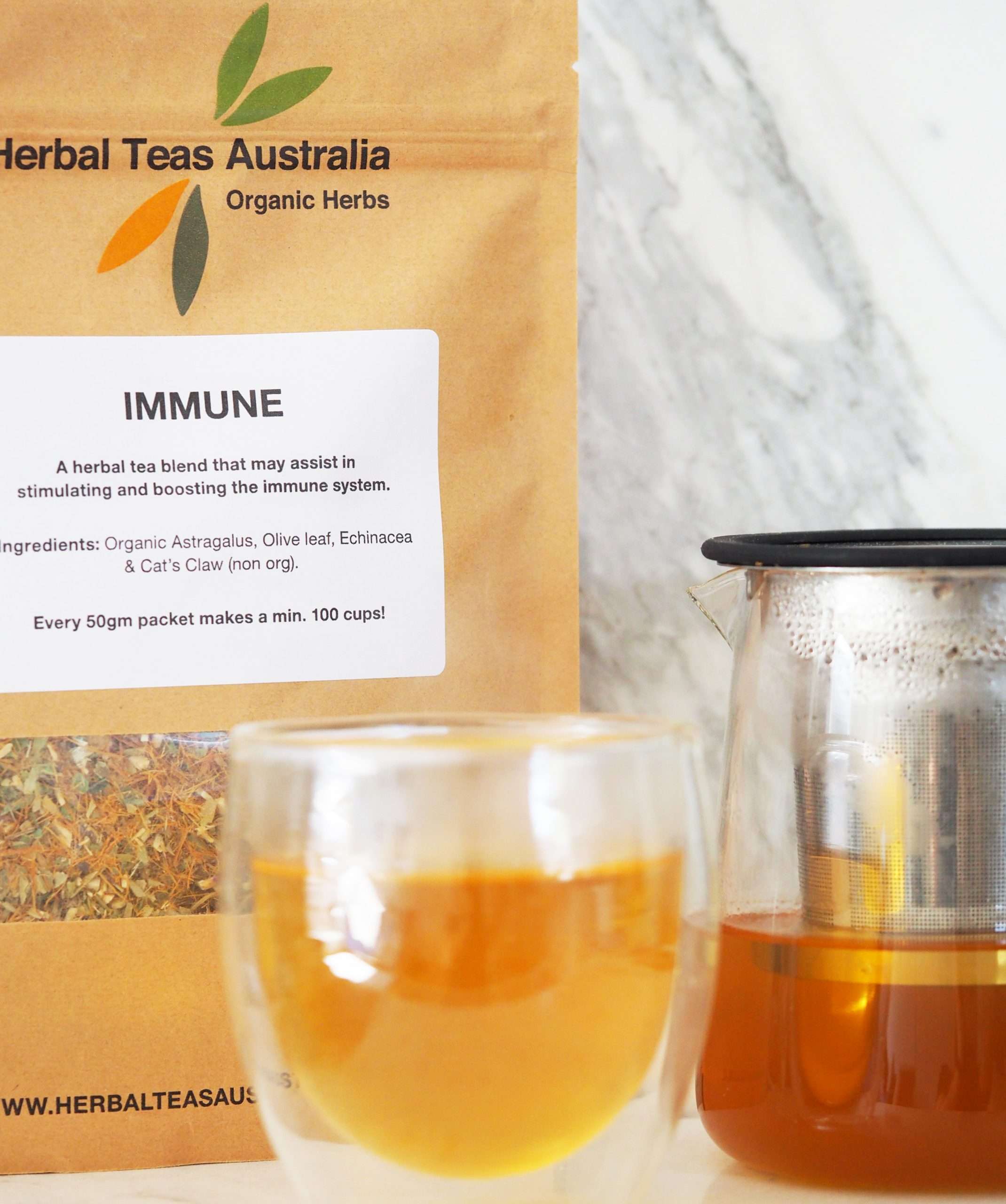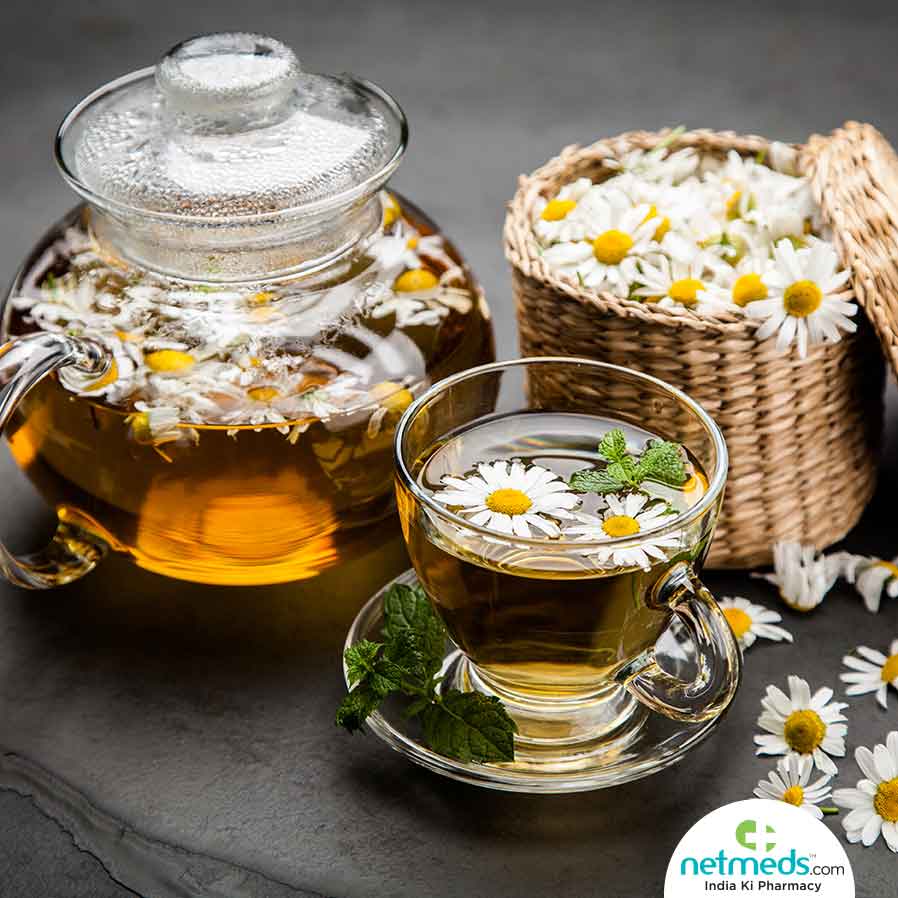How Other Cultures And Traditions View Tea And Immune Health
Generally speaking, Asian culturesparticularly China and Japanhave a much longer history with tea than Western cultures. For example, sources indicate that the medicinal use of tea in China dates back at least as far as the 3rd century B.C.
And along with millennia-old traditions come respect and reverence for the health benefits of tea. For example, according to a traditional Chinese saying, it is better to be deprived of food for three days, than tea for one.
Traditional Chinese herbalists tout the ability of green tea to relax the body, clear heat and toxins, and boost immune function. But even moreso, traditional Chinese medicine holds that drinking green tea every day is an effective strategy for preventing disease, including infection.
And in Japan, green tea is the go-to tonic any time someones feeling under the weather. Some Japanese people also gargle with salted tea when they think theyre getting a cold.
However, Camellia sinensis-derived teas arent the only teas that enjoy a long traditional history. The 5,000-year-old Ayurvedic tradition from India commends the immune-supporting properties of herbal teas with diverse ingredients including ginger, turmeric, peppermint, hibiscus, lemongrass, licorice, chamomile, and tulsi or holy basil .
Elderberry Immune Support Tea
Elderberry tea
Ripe elderberries are famous for making elderberry wine. However, cold and flu treatments made from elderberries contain antioxidants with anti-inflammatory properties beneficial to the immune system.
Laboratory studies have shown that elder extracts act as antivirals, inhibiting replication of flu and other viruses.
In one study, elderberry led to a faster resolution of flu symptoms in 15 people taking four tablespoons of syrup of elder, raspberry, glucose, honey, and citric acid when compared to 12 people taking a placebo.
Studies show that elderberry syrup administered at the first sign of illness shortens the severity and length of colds and flu. Elderberries contain high levels of vitamins A and C and flavonoids with antioxidant properties that outrank other berries.
It doesn’t have to be European Elderberry. European elderberry and North American Elderberry are very closely related. Sambucus nigra is European, and the American is Sambucus nigra variety Canadensis or also called Canadensis.
How to Make Elderberry Tea
- 2 cups of boiled, filtered water
- Simmer for 15 minutes.
- Strain into cup. Add honey or lemon to taste.
May Lower Blood Sugar Levels
High blood sugar can raise your risk of serious health problems.
This includes type 2 diabetes, heart disease and several other chronic conditions.
Test-tube studies have found that echinacea plants may help lower blood sugar levels.
In a test-tube study, an Echinacea purpurea extract was shown to suppress enzymes that digest carbohydrates. This would reduce the amount of sugar entering your blood if consumed .
Other test-tube studies found that echinacea extracts made cells more sensitive to insulins effects by activating the PPAR-y receptor, a common target of diabetes drugs (
Still, human-based research on the effects of echinacea on blood sugar is lacking.
Read Also: Is Green Tea Good For Diabetics
Best Tea For Immune System Health
Its that time of year when colds and the flu do the rounds. But not everyone, of course, wants to dose themselves up with over-the-counter drugs or antibiotics.
While this might, admittedly, be the best method of getting better, there is another option to consider alongside it: your morning cuppa. But what is the best Tea for immune system health? Lets explore below.
This article will discover how Tea helps your immune system, thus supporting the fight against minor illnesses. It will also dive deep into the best Tea for immune system health, showcasing their nutritional value and benefits.
Once you know the facts, you can buy from The Kent and Sussex Tea and Coffee Company. Whats not to like?
What Is Herbal Tea

Despite the name, herbal tea is not actually “tea” as these beverages typically do not contain the leaves or leaf buds of tea plants. Herbal teas are made from tisanes, which are blends or infusions of dried fruits, flowers, spices or herbs in water. Tisanes have been shown to offer medicinal effects. Be an informed consumermany beverages marketed as “herbal tea” with “herbal tea benefits” are nothing more than sugary juice. Is herbal tea good for you? Some herbal teas offer health-promoting properties and have been used as natural remedies for centuries.
Dieticians recommend herbal teas in moderation with medical approval as they can pose some risks to individuals with certain health conditions. Avoid herbal teas that contain added sugar and other additives. Herbal tea should not be used as a substitute for medical treatment.
Also Check: Which Tea Is Best For Sleep
Reasons Why Herbal Teas Are Good For Health
In this article:
Herbal teas have many health benefits. There is a difference between true herbal tea and nonherbal tea.
True herbal teas are made from roots, berries, flowers, seeds, and leaves of a variety of plants. Nonherbal teas are made from the plant Camellia sinensis and contain caffeine. They include black, green, and oolong teas.
Both types of teas contain antioxidants and have their own health benefits, so its recommended to consume a combination of the two in appropriate amounts to maximize their positive effects. This article, however, focuses on the myriad ways in which herbal teas can improve your health.
Seven Herbs To Support Immunity
In light of the current outbreak of the Coronavirus, we wanted to support you and your family in staying healthy this winter in whatever way we can! You should certainly be following all the current guidelines your local and state health departments put forward, but we can also make sure we are at our healthiest to support our body and immune system! In addition to healthy lifestyle practices – including a sensible diet, exercise, enough sleep and low stress – many common herbs can keep our immunity strong through the cold and flu season.
Bastyr’s naturopathic medicine department, says these seven medicinal herbs can help support your immunity:
Source: Supporting Immunity at Home, a talk in the fall 2011 Living Naturally Lecture Series at Bastyr Center for Natural Health in Seattle. Watch the video:
Don’t Miss: Does Chamomile Tea Help Lose Weight
Tea & Migraines References & Further Reading
Blankespoor, J. . Herbs for the immune system. Chestnut School of Herbal Medicine. Retrieved April 3, 2022, from
Winston, D. . An herbalist on the healing power of adaptogens. Goop. Retrieved April 3, 2022, from
Chacko, S. M., Thambi, P. T., Kuttan, R., & Nishigaki, I. . Beneficial effects of green tea: a literature review. Chinese medicine, 5, 13.
Pae, M., & Wu, D. . Immunomodulating effects of epigallocatechin-3-gallate from green tea: mechanisms and applications. Food & function, 4, 12871303.
Rasheed Z. . Molecular evidences of health benefits of drinking black tea. International journal of health sciences, 13, 13.
Bhaskaran, N., Shukla, S., Srivastava, J. K., & Gupta, S. . Chamomile: an anti-inflammatory agent inhibits inducible nitric oxide synthase expression by blocking RelA/p65 activity. International journal of molecular medicine, 26, 935940.
Chandrashekhar, V. M., Halagali, K. S., Nidavani, R. B., Shalavadi, M. H., Biradar, B. S., Biswas, D., & Muchchandi, I. S. . Anti-allergic activity of German chamomile in mast cell mediated allergy model. Journal of ethnopharmacology, 137, 336340.
Herbal Tea Recipes To Boost Your Immunity This Winter
- Meher Mirza
- Herbal teas are considered warriors in the battle against bad health
- Herbal tea is a decoction or infusion of herbs and spices
- Ginger, tulsi, even pepper and cinnamon are all extremely healthy
Let me say it upfront, I am rather a sickly type. I’m constantly felled by stomach upsets and colds. And if I escape those, there is always a headache lurking round the corner waiting to attack my hapless head or a sleepless night to look forward to. Luckily, there’s always a soothing cup of herbal tea available as a panacea even better, most of the herbs can be grown at home in your potted plants.Herbal teas have long been considered warriors in the battle against bad health. Ginger, tulsi, mint, even pepper and cinnamon are all extremely healthy, landing a strong upper cut against illness of any kind. For instance, a gentle chamomile tea will ease anxiety and calm you enough to put you to sleep it’s great for insomniacs peppermint tea is well-known as an antidote to stomach ailments and I’ve read that fennel tea has a light laxative effect on your digestive system.
How to Make Your Own Herbal Tea
You can make herbal teas in the comforts of your kitchen
Ginger tea helps in alleviating the symptoms of a bad stomach
Lemon pepper tea helps in boosting the immunity
Ashwagandha helps stabilise blood sugar and reduces anxiety and stress
Tulsi helps heal a clutch of skin disorders
Mint tea helps in improving memory
About the Author:
Disclaimer:
Don’t Miss: Does Ballerina Tea Make You Lose Weight
Immune Boosting Herbal Tea Blend
Originally published on
This immune-boosting herbal tea blend is the perfect natural remedy to have on hand for cold and flu season. Its a simple herbal tea blend with immune boosting herbs like elderberry and rose hips. This recipe is so easy to make, not to mention delicious, and perfect for soothing a sore throat, easing cold and flu symptoms, and so much more!
Does Green Tea Lower Blood Pressure
The study above cited that black tea can lower blood pressure but does green tea lower blood pressure as well? The good news is: yes, green tea lowers blood pressure as well! So whether you take your tea black or green, both can assist in lowering blood pressure.
The bottom line: Drinking tea does more than give your pinky a workout. The best tea for the immune system also has so many other health benefits.
Read Also: Can Tea Cause Gout Flare Up
Positive Effect On The Immune System
Echinacea is best known for its beneficial effects on the immune system.
Numerous studies have found that this plant may help your immune system combat infections and viruses, which could help you recover faster from illness (
In short, while echinacea may boost immunity, its effects on the common cold are unclear.
Herbal Tea For Immune Support

Fall and winter is often the time for getting sick, although it can happen at any time of year. Luckily there are some great herbal allies that can help us get through the worst of it.
When you feel a sickness coming on, sometimes a hot cup of tea is the only thing that sounds good. Choose this immune boosting tea to help fight off the bug as well as protecting you from future ones!
This immune boosting herbal tea recipe is adapted from my book Healing Herbal Infusions. Its a great book to have on hand for all kinds of herbal remedies!
Also Check: How Does Weight Loss Tea Work
Best Herbal Teas For Immune Support
Traditional herbs are consumed daily in many cultures worldwide for their powerful phytonutrients. Herbs are brimming with antioxidants, essential vitamins and minerals, and other immune-supportive plant compounds.
To complement the potent health benefits of Camellia sinensis teas, here are my top eight immune-boosting herbal tea picks. It’s best to consume herbs when they are fresh for maximum benefit.
How To Use Herbs
Mona Dan, LAc, MTOM, herbalist, acupuncturist, and founder of Vie Healing, says that herbs can be incorporated in various ways, like in the form of teas, loose powders, and salves. They’re so versatile and have many uses.
“There are many herbs that you are likely familiar with that you can simply add to your culinary repertoire and reap lovely health benefits,” Poon says. “Herbs such as thyme, oregano, sage, and basil can be used fresh or dried in dishes, infused into oils, or, if youd prefer, purchased in tincture or capsule form. Other herbs that might not be as familiar but traditionally support wellnesssuch as echinacea, astragalus, and neemcan be dried and consumed as a tea or can also be purchased in concentrated forms.”
When sourcing herbs, you want to look for quality above all. Poon says one of the best ways to get herbs is by purchasing organic seeds and growing your own at home. If you can’t do that, Poon recommends purchasing herbs from local farmers, seeking out organic produce, and researching purveyors.
Read Also: How To Make Ginger Root Tea
May Offer Protection Against Cancer
Cancer is a disease that involves the uncontrolled growth of cells.
Test-tube studies have shown that echinacea extracts may suppress cancer cell growth and even trigger cancer cell death (
While it appears to be safe for short-term use, its long-term effects are still relatively unknown.
Summary
Echinacea appears to be safe and well tolerated in the short term, but its long-term effects are relatively unknown. It may not be safe for people with certain health conditions or who are taking certain medications.
There is currently no official dosage recommendation for echinacea.
One reason being that findings from echinacea research are highly variable.
In addition, echinacea products often may not contain what is . One study found that 10% of echinacea products samples did not contain any echinacea (
- Dry powdered extract: 300500 mg of Echinacea purpurea, three times daily.
- Liquid extract tinctures: 2.5 ml, three times daily, or up to 10 ml daily.
However, its best to follow the instructions that come with your specific supplement.
Keep in mind that these recommendations are for short-term use, as echinaceas long-term effects on the body are still relatively unknown.
Summary
Echinacea products are highly variable, which makes it hard to set a standard recommended dosage. The dosages vary with the form of echinacea youre using.
Its considered safe and well tolerated for short-term use.
Suggested dosages vary depending on the form of echinacea youre using.
Is Tea Good For Immunity
Most of us have reached for a mug of hot tea in the hopes of easing a sore throat or staving off the common cold.
The concept of tea as medicine is nothing new. The Chinese have been using this method for centuries to reduce ailments and improve the immune system, says Paulina Lee, RD, a Houston-based registered dietitian who uses Western medical practices and alternative and integrative therapies to help clients address the root causes of their health concerns.
Despite the widespread use of tea for immunity, there is little hard scientific evidence to prove that tea offers this type of perk. Read on to learn what weve discovered about how tea may or may not keep your immune system on point.
Don’t Miss: Is Green Tea Good For Your Body
Using Tea To Boost Your Immune System
A cup of tea can be a great way to boost your bodys defenses in order to keep from getting sick. Many types of tea have antiviral, antimicrobial, and immune-boosting properties that can help to keep you in tip-top shape. Tea has been used as a component in herbal medicine for hundreds of years in order to ward off illness and soothe the symptoms of colds and sore throats.
That said, tea isnt a replacement for proper medical treatment if you think you might be getting sick. While tea can help to ward off illnesses and soothe symptoms when youre feeling under the weather, you should always check with your doctor and if youre seriously sick.
READ MORE:
Avoid Processed Foods And Sweetened Soft Drinks
This is no time to bombard your body with processed foods, inflammatory omega-6 oils , fried foods, high-fructose corn syrup, refined sugars or chemical additives.
These toxic “treats” force your body to do extra work to expel all this junk and repair the internal inflammation that they cause in your body. Also, grain-based foods like bread, cereal, muffins, pasta and bagels are major culprits in causing internal inflammation and disrupting normal gut function, so avoid grains as much as possible.
These seven natural remedies will go a long way toward helping you boost your immune system and ward off seasonal sickness.
Recommended Reading: What Tea Is Good For Migraine Headaches
Top 5 Herbal Teas For Immune Support
If youre looking for something extra to complement the potent health benefits of true teas, here are our top herbal tea picks for immune support:
1. Ginger tea is an Ayurvedic staple traditionally used to aid digestion and decrease inflammation. Research suggests it supports healthy immune function and cellular health.
2. Turmeric, often added to ginger tea, is said by Ayurvedic practitioners to assist with circulation, the liver, and healthy joints. New research confirms turmeric can support cellular health, support your bodys natural anti-inflammatory response, and support your immune cells.
Heres our recommendation for turmeric tea:
How To Boost Your Immune System With Immune Support

A well-functioning immune system is the foundation of a healthy body. Botanical remedies are a nutritional source of immune support. Hippocrates emphasized dietary and lifestyle measures as part of the original Hippocratic oath.
Let food be thy medicine, and let medicine be thy food.
Hippocrates
Your immune system includes cells, tissues, and organs that fight infection and disease. Your skin, mucous membranes, and white blood cells all fight to prevent or trap germs that enter the body.
A major part of your immune system lies within the intestines. This central body organ is responsible for 70 percent of your immune system. A healthy gut microbiome is vital for a healthy immune system.
Don’t Miss: Where Can I Buy Echinacea Tea